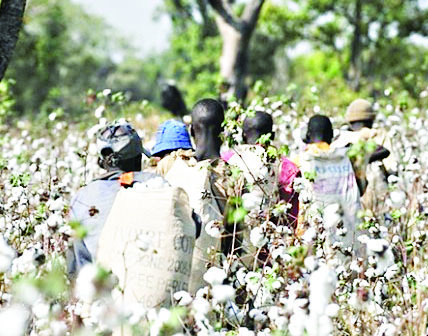
Cotton Market Teeters: Opportunities and Challenges for Malawi’s Economic Growth
Key Business Points
- Delayed payments are affecting farmers in the cotton industry due to the newly introduced digital system, causing concerns among stakeholders.
- The cotton market has shown a mixed performance, with positive developments in market accessibility but concerns over pricing trends, which have remained at the government-set minimum price of K1,200 per kilogram.
- The digitalisation of cotton marketing aims to protect farmers from unscrupulous buyers, reduce loan defaults, and deter side buying and selling, but has faced technical challenges in its first year of implementation.
The cotton industry in Malawi has started the selling season with mixed feelings among stakeholders. Despite the sales of about 4 million kilogrammes of cotton, realising on average K4.8 billion in revenue since the market opened on June 7, 2025, farmers have expressed disappointment with the pricing trends. The government-set minimum price of K1,200 per kilogram has been maintained by buyers, citing global cotton market trends as the reason for this. Zinthu zili mwamba, the markets have been established, making it easier for farmers to sell their cotton, but the prices have not been exciting.
Cotton Farmers Association President Lapson Zidana noted that the performance of the cotton market presents a mixed bag, with positive developments in market accessibility but concerns over pricing and payment systems. The mfumukazi of the Cotton Farmers Association expressed disappointment with the pricing trends, stating that usually, when the market opens, prices increase beyond the government-set minimum price. However, this year, buyers have complained that global cotton market trends have made it impossible for them to consider any price adjustments.
The digital system introduced this year has also raised concerns about delayed payments to farmers. Cosama Luwanda, Chief Executive Officer of the Cotton Council of Malawi, acknowledged that the reform process has faced significant challenges in its first year of implementation. The system aims to protect farmers from unscrupulous buyers, reduce loan defaults, and completely deter side buying and selling. However, technical challenges affecting payment processing, particularly difficulties some farmers face in opening bank accounts for receiving money, have led to payment delays.
Luwanda noted that wrong entries of account numbers and phone numbers for payment of cotton proceeds have also created problems with payment delays. The system has eliminated most vendors and other beneficiaries who previously profited from farmers’ labor, and these groups have attempted to fight back by misinforming farmers to reject the system. The Cotton Council of Malawi is working to address these challenges and ensure that the digital system benefits farmers and the industry as a whole. As the ulimi wa khaki continues to evolve, it is essential for stakeholders to work together to address the challenges and ensure that the industry ikulimbikitsane, moves forward, and benefits all parties involved.
What are your thoughts on this business development? Share your insights and remember to follow us on Facebook and Twitter for the latest Malawi business news and opportunities. Visit us daily for comprehensive coverage of Malawi’s business landscape.
- Malawi’s K1.2tn Gold Smuggling Scourge: A Threat to Business Growth and Economic Stability - February 1, 2026
- Revitalizing Malawi’s Economy: Lower Food Prices Signal New Growth Opportunities - January 31, 2026
- Revitalizing Malawi’s Economy: Tackling Climate Related Underfunding for Sustainable Growth - January 30, 2026
